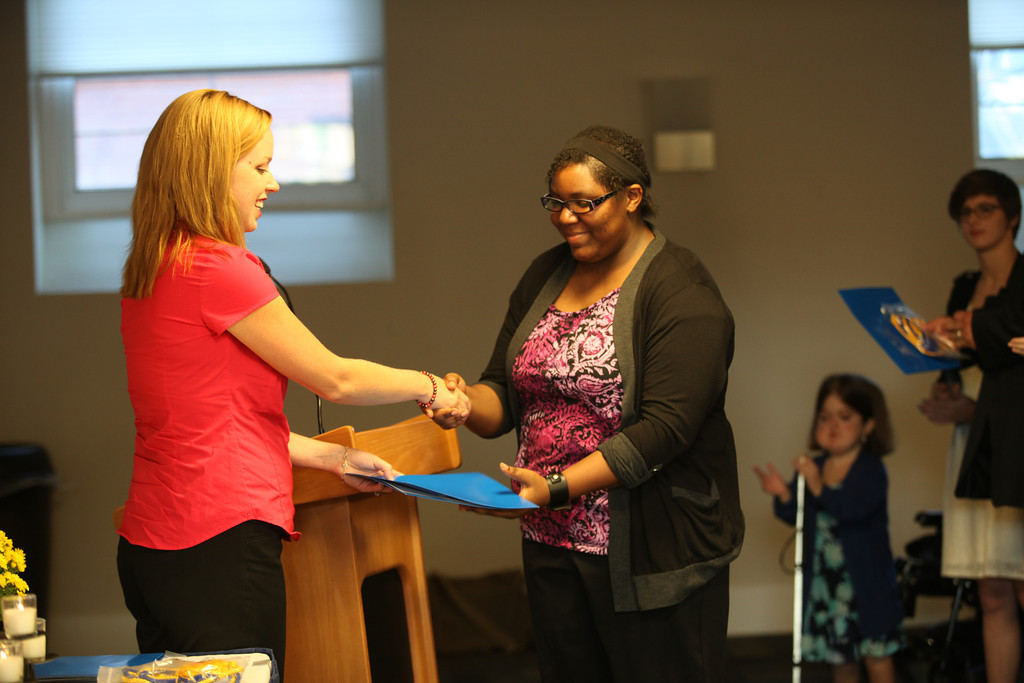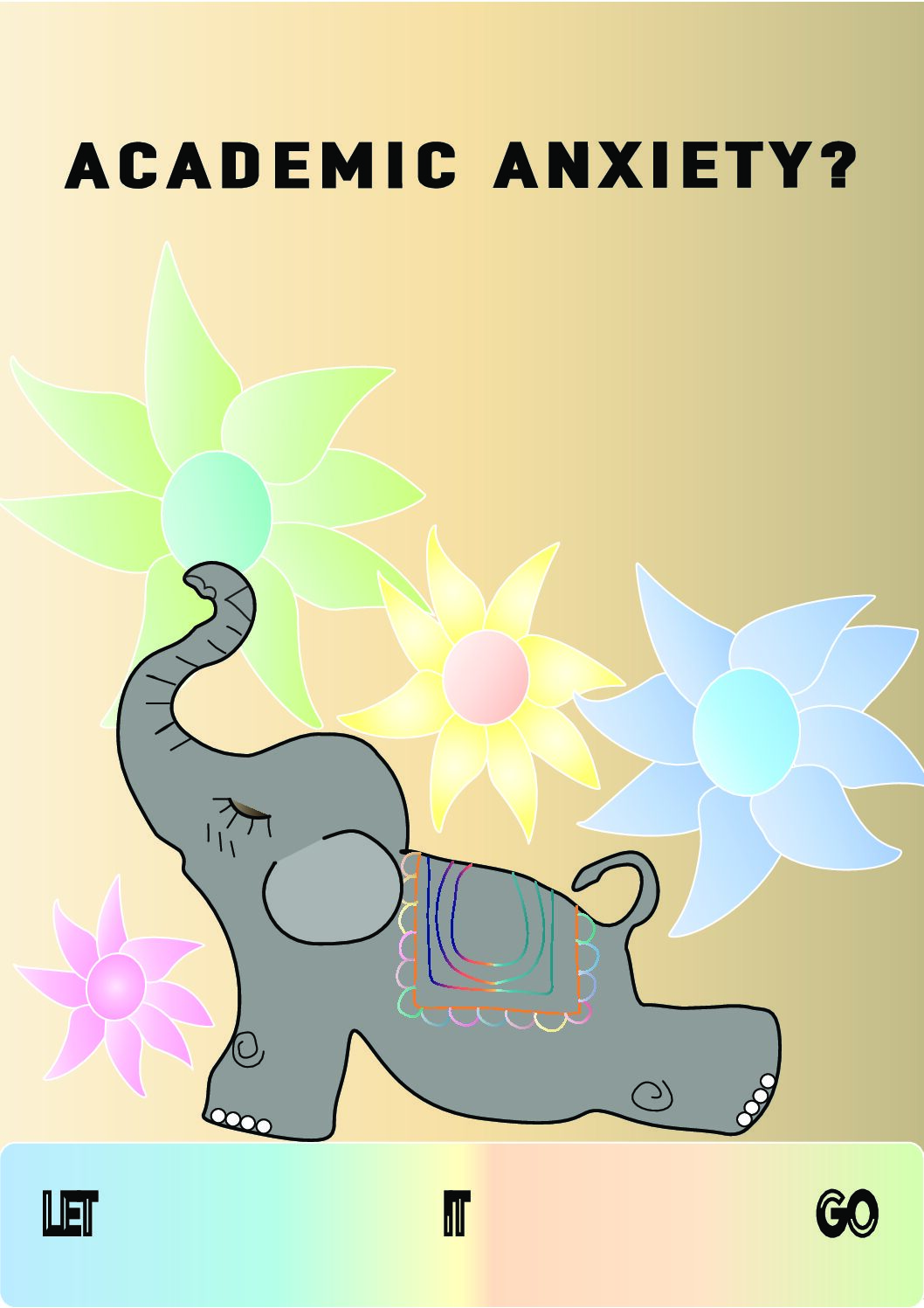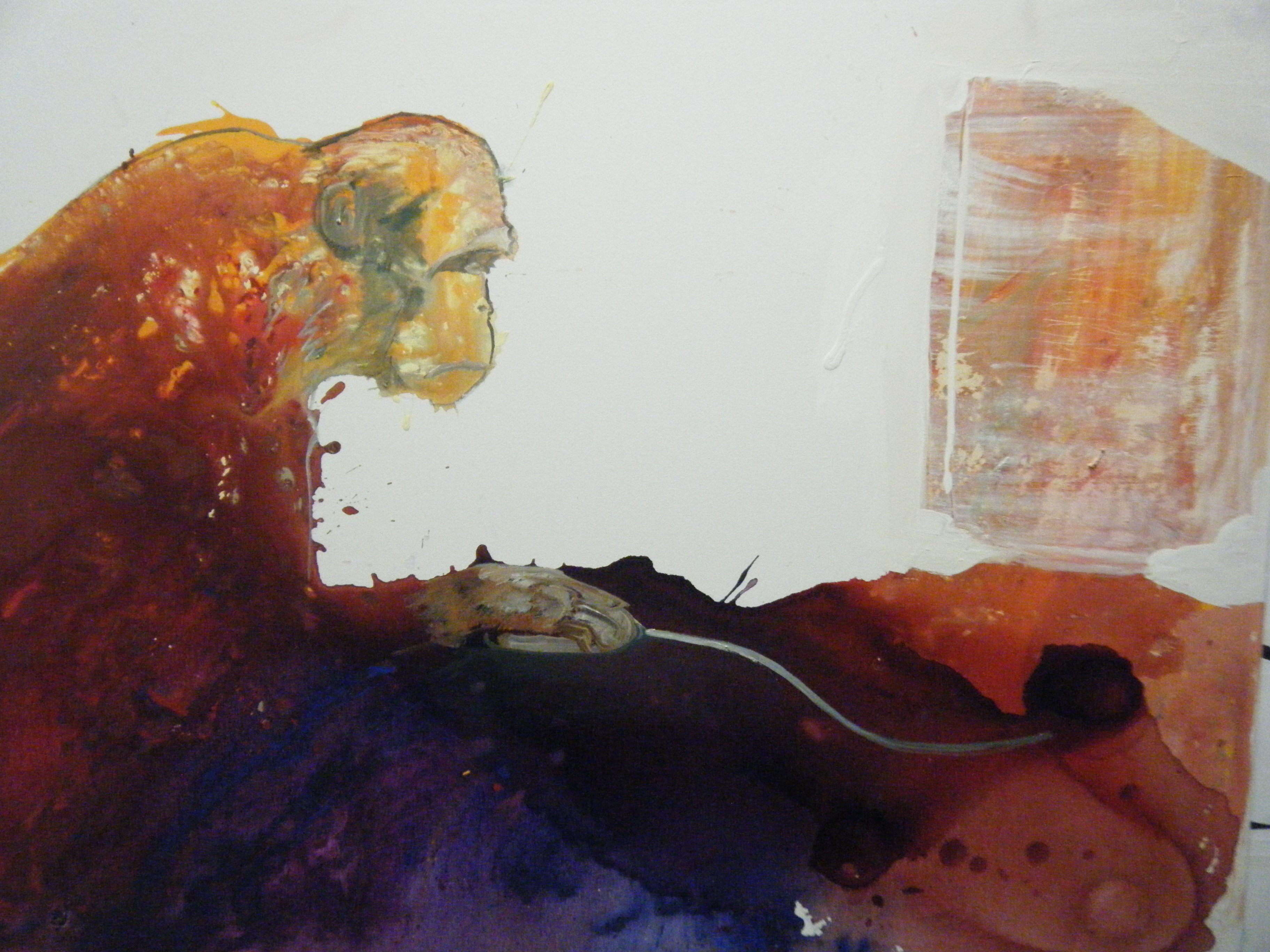
By Joe Denicola
Students proceeded into the Coblentz Seminar Room and took their seats as they waited to be inducted into Hood’s newly founded academic honor society.
They come from varying backgrounds, are majoring in different subjects, and participate in multiple campus clubs and events. What links these students is that each one has a documented disability.
This international academic honor society known as Delta Alpha Pi (DAPi) was created in 2004 to celebrate the achievements of individuals with disabilities. Since its inception, it has spread to colleges across the country, helping improve how others perceive people with disabilities.
Eileen Rudnick, a graduate student at HoodCollege and founder of the Gamma Gamma chapter of the honor society, stands before the gathering and begins her speech. She describes the struggles and stigmas faced by those with disabilities, delineating three major stereotypes affecting the audience members: an “innocent” who is a poor and unfortunate person suffering in every way; an “inspiration” who has super-enhanced abilities that compensate for the disability; and an “evil” who has a visible deformity that reflects a dark nature. She notes that individuals “who have disabilities are no more or less likely to be innocent, to be inspirational, or to be evil than the rest of society.”
Next Emily Kraatz, vice president of DAPi, explains to the crowd that this honor society was designed to “recognize the academic accomplishments of HoodCollege students with disabilities, facilitate the development of leadership and advocacy skills, and provide opportunities for members to serve as mentors and role models.” She also emphasizes that membership in DAPi requires more than merely having a documented disability. Each undergraduate “must have completed a minimum of 24 credits and earned an overall quality point average of 3.10,” while graduates “must have completed a minimum of 18 credits and earned an overall quality point average of 3.30.” These requirements also reveal another important message of the honor society: that having a disability does not mean that a student cannot achieve exceptional academic success.
Finally, secretary Caitlin Presley reminds the assembled of how important advocacy from within the club is to other students with disabilities at HoodCollege. She explains that due to “the negative stereotyping associated with disability, students have been reluctant to identify themselves publicly.” By showing what people with disabilities are capable of achieving, members of DAPi can challenge the stigmas associated with disabilities and help other students feel less ashamed of that part of themselves.
At her speech’s conclusion, the speakers light three candles with each one symbolizing a different honor society goal. The first is lit for leadership, so that members will understand that the way they act and take charge affects the way in which others view those with disabilities. The second is lit for advocacy, so that members know that they need to speak up about these issues and that doing so will help change harmful, preconceived notions that others may have of students with disabilities. The third and final is lit for education, so that members realize the importance of not only maintaining academic success but also taking the time to teach others about disabilities and what they mean for those affected by them.
With each candle lit, the officers of DAPi are officially sworn in and the member students are given certificates to recognize their acceptance into the honor society. Each new member departs in a single-file line, inspired to represent the disability community on Hood’s campus and to help improve the views that others have of individuals like themselves.




Be the first to comment